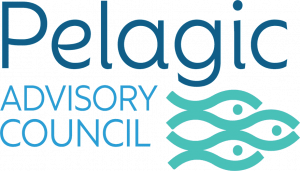| PelAC letter to NWW MS Group on compliance evaluation LO report publication | The PelAC requests the NWW HLG to accelerate its decision on the matter of the publication of the report on the evaluation of compliance with the landing obligation for mackerel in NS and NWW 2018-2020. | 2023 | Letter to NWW MS Group |
| Fishing opportunities 2024 | The Pelagic AC provides recommendations on TACs in 2024 for stocks under its remit. | 2023 | Letter to Com |
| PelAC recommendation on Energy transition in the pelagic sector | Following the PelAC workshop on 20 April 2023, the PelAC sent this first advice piece to the Commission and Member States dedicated to energy transition, from the specific perspective of the fishery segment on small pelagic fish. These recommendations are the result of reflections following the material presented at the workshop and the subsequent discussions in the PelAC Ecosystem Focus Group and outline the PelAC’s views on how this transition could take form, under what conditions and what barriers would need to be addressed. We see this as a first contribution to the knowledge base and the reflections on this key new topic, with more to follow. | 2023 | Letter to Com |
| PelAC recommendation on EAFM | The PelAC developed the recommendations as set out in this letter, as a result of discussions and reflections during the PelAC workshop on EAFM organized in February 2023, which sought to identify approaches to implement EAFM in pelagic fisheries, as well as gather elements to enable further progress in relation to integrating ecosystem variables in pelagic fisheries management, and to identify knowledge gaps. The PelAC hopes the Commission will find these recommendations useful in their reflections to gradually move beyond single-species advice and to further develop the uptake of ecosystem considerations and climate driven changes into fisheries advice and management strategy evaluations. | 2023 | Letter to COM Commission response |
| PelAC advice on CFP Package | The PelAC submited its unanimous views taking a pelagic fisheries perspective. As such, the response is based on a selection of sections and actions in the documents, deemed most relevant for pelagic stocks that fall under remit of the PelAC. The PelAC hopes that this advice will help to inform the Member States on the further implementation of the actions set out in the documents and provide material for further reflections. The letter is submitted to the following Member State Goups: Scheveningen Group, North Western Waters and South Western Waters regional groups. | 2023 | Letter to Scheveningen Group Letter to SWW Letter to NWW |
| PelAC recommendation on harmonising the implementation of the bycatch TAC for Western horse mackerel | Following the PelAC rebuilding plan for Western horse mackerel sent to the Commission in July 2020, the Pelac now recalls its recommendation for an urgent benchmark dedicated tot he three horese mackerel stocks. The PelAC also wishes to point out that the decision for setting a ‘bycatch’ TAC for Western horse mackerel for 2023, has led to unforeseen pratical issues in the implementation by Member States, jeopardising the level palying field for EU industries fhishing this stock. In this recommendation the PelAC outlines the difficulties encountered in the implementation of the bycatch quota in 2023 across the different Member States based on feedback received by its industry members, and asks for Commission support to establish coherence between MS approaches to avoid similar difficulties in 2024, as a fallback solution in the event that it is not possible to hold a benchmark in 2023. | 2023 | Letter to COM |
| Joint Recommendation NWWAC/PelAC on Sprat in English Channel | The NWWAC and PelAC sent a joint recommendation on Sprat in the English Channel following the ICES advice. | 2023 | Letter to COM Commission Response |
| Joint ACs letter on Commission requests for ICES training | Following the recently provided courses by ICES at the request of DG MARE, NWWAC, LDAC, CCRUP, BSAC and PelAC thank DG MARE for the opportunity but regret that participation by both members as well as the Secretariats was severely limited due to late notification. We would appreciate if requests made by the Commission to ICES for training in the future could include notification from the Commission to the AC Secretariats so that the ACs are aware of the planning as early as possible. | 2023 | Letter to COM Commission Response |
| PelAC letter requesting an opportunity to convey PelAC views on Energy tranistion | Following the PelAC virtual workshop on 20 April 2023 on Energy transition in the pelagic sector, the PelAC would greatly appreciate an opportunity to report on these workshop outcomes though a speaking slot during the event on the Energy Transition in the EU fisheries and aquaculture sector organised by the Commission on 16 June 2023. | 2023 | Letter to COM Commission response |
| PelAC letter on the Coastal States sharing status for the Northeast Atlantic mackerel stock | The PelAC fully supports the European Commission’s commitment and efforts to find a rational sharing arrangement between all involved Coastal States for the Northeast Atlantic mackerel stock, but once again, observes the real risk of parties persisting with the setting of excessive unilateral quotas, which would lead to another year of catches exceeding the Total Allowable Catch (TAC) that has been set in line with scientific advice for 2023. The PelAC again underlines its deep concerns regarding the consequences of other parties maintaining these potentially repeated irresponsible decisions, that run contrary to the UN Convention on the Law of the Sea, and particularly the 1995 Straddling Stocks Agreement, effectively deeming this approach IUU fishing. | 2023 | Letter to COM Commission Response |
